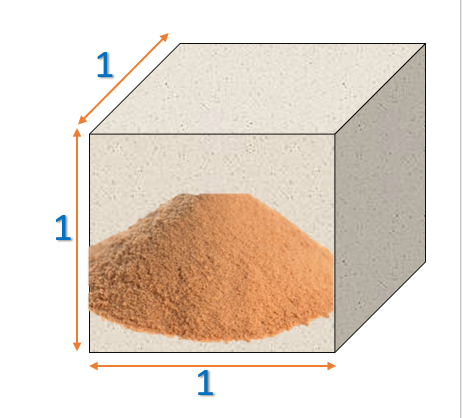1 cubic yard of concrete or asphalt weighs about 4 000 pounds.
Cubic yard of sand weighs.
1 cubic yard of roof shingles can weigh between 4 200 7 000 pounds.
You don t have to remember the density of sand though our calculator has a preset value for density.
The water content of the sand is assumed to be moderate.
The calculator would perform the following calculations.
Ultimately it depends on its moisture content and the type of sand it is.
Density of sand dry is equal to 1 631 kg m.
V olume area depth 100f t2 3in 25f t3 v o l u m e a r e a d e p t h 100 f t 2 3 i n 25 f t 3.
In imperial or us customary measurement system the density is equal to 101 8 pound per cubic foot lb ft or 0 9428 ounce per cubic inch oz inch.
One cubic yard of sand or 27 cubic feet of sand weighs 2 600 to 3 000 pounds 1 179 to 1 360 kg.
This amount is also roughly equal to 1 1 2 tons.
The sand s density is 100 lb ft and costs 15 per cubic yard.
A cubic yard of typical sand weighs about 2700 pounds or 1 35 tons.
A square yard of a sandbox with a depth of 1 foot 30 48 cm weighs about 900 pounds 410 kg or slightly less than half a ton.
1 cubic foot of sand dry weighs 101 82 pounds lbs sand dry weighs 1 631 gram per cubic centimeter or 1 631 kilogram per cubic meter i e.
1 cubic yard of sand can weigh between 2 600 to 3 000 lbs.
1 cubic yard of drywall weighs about 500 pounds.
The approximate weight of 1 cubic yard of sand is 2 600 to 3 000 pounds.
For estimating purposes most contractor s consider the yield to be 3 000 pounds per cubic yard or 1 5 tons per cubic yard.
How much does a 5 gallon bucket of sand weigh.
To calculate the weight of a cubic yardof sand you simply have to multiply its volume by its density.
1 cubic yard of sand gravel or stone can weigh more than 3 000 pounds.
A 5 gallon bucket of sand weighs approximately 68 pounds 31 kg.
Of course if you decide to use some unusual material feel free to change the value.

